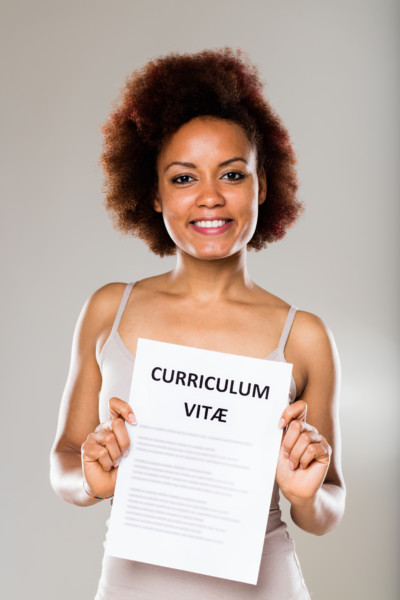Career
Yewande Jinadu: All Inclusive Guide to Writing A Good CV
 A curriculum vitae (CV) is a personal marketing document used to sell yourself to prospective employers. A lot of jobseekers get it wrong through their CVs, never getting past that stage. But here are a few tips to help you learn to write a good CV and get that desired job.
A curriculum vitae (CV) is a personal marketing document used to sell yourself to prospective employers. A lot of jobseekers get it wrong through their CVs, never getting past that stage. But here are a few tips to help you learn to write a good CV and get that desired job.
Full Name, House Address (or LGA, State), Phone Number, Email Address
These should be at the top of the page. It’s not compulsory to put your full house address anymore, for security reasons. You may also include the link to your LinkedIn profile, but only if it’s up to date
Professional Summary or Career Objective
A Career Objective is recommended for a fresh graduate. Professional Summary is recommended for an experienced candidate. Your career objective should contain who you are, what you can offer the company and your career goals. Please keep it short and concise.
Education
Please do not separate your school from your degree. They should be together. For example:
Lagos State University
BSc. Chemical Engineering (Polymer Option)
Grade: Second Class Upper (2:1)
CGPA: 4.45
Academic achievements
If you were a scholar, a team lead, or a research assistant to your professor, you can include it here.
Research, publications and awards
Include your project topic and relevancy. If it was published somewhere, include the journal. Include any relevant award.
Employment History
This includes internship or volunteer experience. Nothing is too little. Even if you were a PA in your mum’s shop. Include it with a job description and an achievement (if any).
Relevant Hobbies/Interest
Please, let it be relevant. If you’re applying to a creative industry, hobbies are a plus, so it shouldn’t be left out all the time.
Here are some tips to ensuring your CV is in good shape:
- Don’t save your resume as ‘CV’ or ‘My CV.’ Your full name is best for your CV title.
- Consider what you are applying for. A good resume should be tailored to the job you are applying for and shouldn’t be a ‘one size fits all.’
- Putting references is not important, to avoid unnecessary bias. If you make it through the process, it would still be requested for.
- Keywords are important. Some companies use ATSes that sift out CVs with certain keywords. To know what to include, study the job description for the required skills.
- Ensure your CV is uniform. If the name of the company is in bold/italics, ensure all others are in the same format. One to two pages is recommended for fresh/entry level candidates.
- Do not include your picture, age, blood group, religion, state of origin/tribe/nationality. The only personal information I would advise is sex and marital status.
- It’s better you send your CV is .pdf format, and not .doc, unless otherwise stated.
- Use black readable fonts. Calibri Size 12 is recommended.
- Download ‘Grammarly’ to correct all grammatical errors.
- Ensure your experience and education is in reverse chronological order. It means you have to present the most recent experience first, and move down to older experiences.
I wish you the best in your career journey. Join our monthly Twitter Mentoring Session by following @careerlifeng.




















